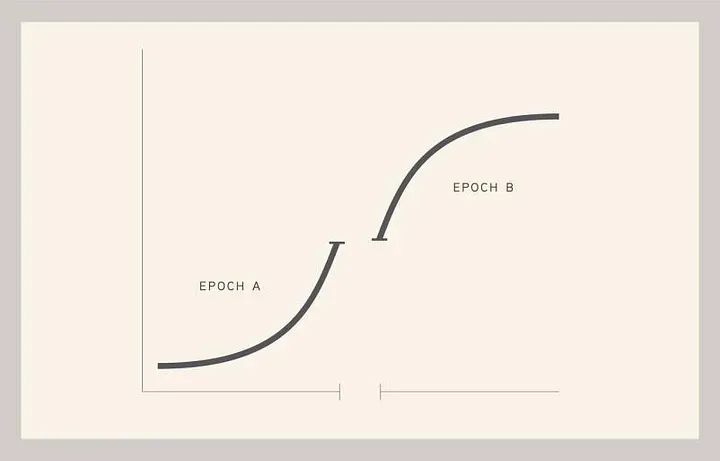It's Not Normal. It's an Extinction Burst.
With great change comes great tantrums.
Fifty years ago, B.F. Skinner said something truly prophetic during an interview. As he put it, "things go bad when you make a fetish out of individual freedom and dignity. If you insist that individual rights are the summum bonum, then the whole structure of society falls down."
He was right.
If you look around, there's an excessive sense of personal entitlement these days. It's not coming from any particular generation. It's everywhere. Nobody wants to give up anything for a greater good or a brighter future. They're obsessed with their short-term comfort. They go around talking about their own freedoms all the time.
They don't care about anyone else's.
When you even suggest limiting or giving up anything, you face epic levels of backlash. The same thing happens when reality proves anyone wrong. The denial and wishful thinking don't fade.
They get worse.
We saw this behavior on a global scale at the recent COP summit, where billionaires and oil executives acted like spoiled kids, arguing with climate scientists and insisting they could have their carbon and eat it too. On the one hand, it's shocking that the hottest most destructive year in recorded history led to the least productive round of climate talks since they began. On the other hand, this probably wouldn't surprise behavioral scientists at all.
It's predictable.
According to Skinner, there was no such thing as individual will. Not really. Humans aren't that different from rats and pigeons, and he could condition them to spin in circles for food. You can do the same with us.
Over the years, sociologists and psychologists have noted a pattern in human behavior.
When we don't get what we want, we throw tantrums. If you stop reinforcing a behavior, we'll engage in more of that behavior.
It's called an extinction burst.
Normally, an extinction burst comes before the decline in a bad behavior. Our brain eventually figures out that we aren't going to get rewarded for acting that way anymore.
Finally, we stop.
If you're a parent, you're probably quite familiar with the idea of the extinction burst. Plenty of parenting books and blogs give advice on how to outlast a surge in tantrums and complaining before your kid calms down and behaves.
We're watching a series of gigantic societal extinction bursts right now. As the truth about our problems gets out, a lot of people are doing the exact opposite of what they should be. While some people are finally putting on their adult face, others are doubling and tripling down. They're getting angrier. They're lashing out even more.
The trolls are going nuts.
Unfortunately, extinction bursts from adults are a lot harder to deal with. They're bigger. They can buy guns. They have the internet.
Children usually can't get reinforcement for their bad behaviors from outside the home. Parents control their world, and it gives them a lot of influence.
But an adult can find plenty of outlets for their extinction bursts. They can build an audience through them. That audience will reward their bad behavior all day.
It can even make them rich.
Corporations know all about conditioning. They've spent the last hundred years nurturing the exact fetishized version of individual rights and personal comfort that Skinner tried to warn us about. It's ironic, even counterintuitive, but they conditioned everyone to believe in a fake version of free will that's predicated on consumption.
It's almost genius.
These days, a majority of people equate consumerism with individual rights. They can't think outside of that little box. They've been conditioned to perceive any alternative to their mediocre lives as a threat to their freedom. Meanwhile, it's the endless cycle of consumerism that's keeping them trapped. They would rather die than give up their concerts, their big box stores, their sports bars.
And they're doing it.
They're dying to protect these things.
People think they're choosing not to wear masks or get vaccinated. They think they're choosing to live their lives when they resign themselves to constant infections. They think they're choosing to stay quiet about climate change while doing nothing to deal with it.
They're not.
These choices are being made for them, and they're being conditioned to accept them under slogans that gratify their egos and maintain their self-image. Then they get angry when climate disasters disrupt their vacations and supply chains, or raise the cost of goods.
People see their quality of life declining in real time and panic, especially in the first world. They don't link that decline to their own behaviors, though. They externalize the problem.
The more elusive "normal" becomes, the harder they try to engage in "normal" behaviors.
That's an extinction burst.
When someone refuses to cancel a vacation, even when their destination is on fire...
That's an extinction burst.
When someone gets angry and lashes out at you for their Covid infection, even after you tried to warn them...
That's an extinction burst.
The world itself is changing. It's not rewarding their poor behavior anymore. They want to live their old lives, but it's not letting them, and they're getting angry. They're looking for someone to blame, to direct anger at, anyone. They're consuming more. They're going on more trips. They're doing more things to destroy the planet.
That's an extinction burst.
An extinction burst can last anywhere from a few hours to a few weeks. In this case, it's lasting years, because people still have all kinds of ways to reinforce each other's bad behavior.
Corporations are happy to indulge it.
Eventually, it will end.
Jonas Salk (the guy who invented the polio vaccine and gave it away) predicted that society would eventually reach a tipping point. Right now, greed and self-interest dominate. Society operates on the abundance mindset. Everyone thinks they can have whatever they want.
He called that Epoch A.
As we deplete our resources, society will shift into a new paradigm where collectivism dominates. That's the kind of behavior the world rewards.
He called that Epoch B.
Salk graphed the transition, and his son Jonathon Salk elaborated on it in A New Reality: Human Values and World Population.
It looks like this, an S-curve:

It's not going to be a smooth transition. There's going to be a lot of disaster, and a lot of fighting.
Epoch A isn't going down without a fight.
Skinner might've overstated our lack of free will, but he wasn't wrong. We're easily influenced, easily trained, easily conditioned. We're tricked into thinking free will is our default setting. It's not. We can achieve something along the lines of independence. It's hard.
You have to examine your own thinking. You also have to accept that to a large extent, you're the product of influence and conditioning. Individualism or agency can't exist in a vacuum, all by itself.
Skinner was right.
There's a positive correlation between our individualism and the current state of our societies. Selfishness and narcissism have reached all time highs, while compassion and empathy have reached record lows.
Fewer and fewer people abide by the social contract, but they still expect it to be there for them. Nobody wants to give. Everyone wants to take.
And so, the whole structure of society falls down.
Not everyone's like that. Some of us have already embraced Epoch B. We're ahead of the curve...
Literally.
It sounds funny to think of extinction bursts in adults, but it's not so funny when you think about them in terms of gun massacres, war, famine, and genocide. These extinction bursts could lead to actual extinction.
Let's try to avoid that.
OK Doomer is supported by readers. If you appreciate this work, please subscribe or buy me a coffee.








